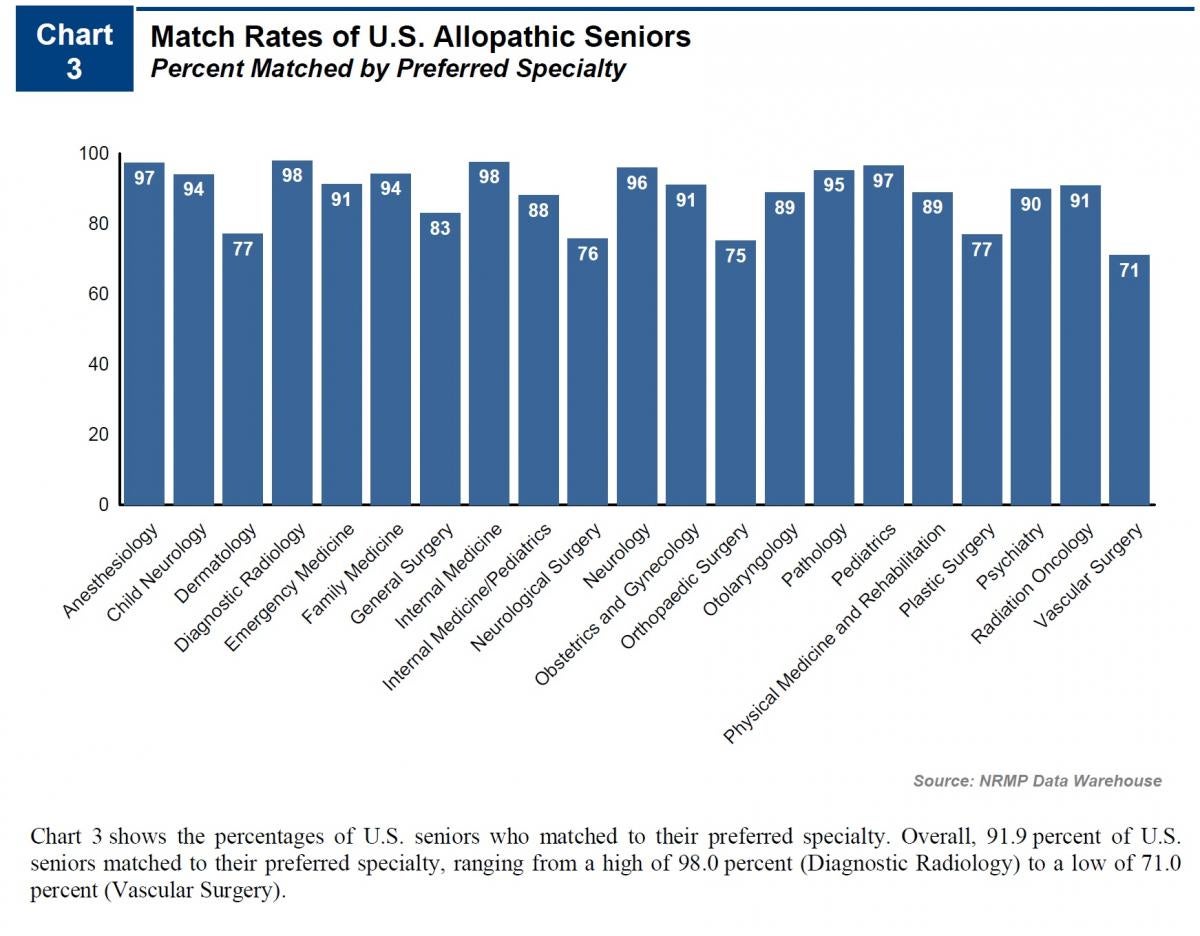Pre-Clinical Advising
NRMP Resources
NRMP Charting Outcomes 2016 – Characteristics of U.S. Allopathic Seniors Who Matched to Their Preferred Specialty in the 2016 Main Residency Match (1st edition). This report provides data that shows how individual characteristics relate to the probability of applicants matching.
NRMP Program Director Survey 2016 – This is a report that outlines the various attitudes and concerns of residency program directors as far as what they are considering in resident applicants as they decide who to interview and who to rank.
Beginning the conversation of career counseling can never start too soon, but be aware that there is a natural progression in the eventual choice of your specialty. The Georgetown University School of Medicine has multiple resources at your disposal, yet much of the impetus of honing in on your career will be dependent on your own ownership of the Career Counseling available.
The vast majority of students will not finally decide on their career choice until they have had the actual clinical experience of that field in their third year clerkship. There are some career specialties, however, that due to their highly competitive nature may require early decisions to be made about how to proceed in your medical school choices.
This 2016 NRMP chart demonstrates those highly competitive specialty fields:

If you have a strong interest in one of these highly competitive specialties, you may want to review the Careers in Medicine website thoroughly throughout your first year and initiate conversation with your Pre-Clinical Advisor early, rather than later. You might also review the NRMP’s 2016 Charting Outcomes for the Match and Program Directors Report for your specialty of interest (see links to the right).
To assist medical students, the Dahlgren Medical Library has collated several different Career Development resources and workshops to assist you in career decision making, including the famous book, The Ultimate Guide to Choosing a Medical Specialty, by Georgetown’s own Brian Freeman, MD.
To assist medical students in maintaining a running portfolio of your specialty interests and activities, a Clinical Advising E-portfolio aligned with the Careers in Medicine (CiM) website has been created that you might periodically share with your Clinical Advisors to keep them apprised of your progress.
In regards to your Summer Experience following First Year … (taken from the Careers in Medicine website):
Early in the second half of your first year of medical school, begin thinking about your summer plans. You have a choice to make: take a break and relax, or use this as a time to explore some of your career specialty interests.
Some specialties require research experience or other prerequisites when applying for residency. The demands of your future course schedule may mean fewer opportunities to do research or gain other experience unless you take time off to do so. Even though we recommend that you wait before committing to a specialty, if you’re interested in conducting research or are leaning toward a specialty that may require additional experience, try to work it in during the summer break.
Some ideas:
- Work in a research program
- Volunteer abroad
- Obtain a preceptorship
- Arrange a “shadowing” experience
There are a number of summer opportunities available to gain experience and exposure to specialties or practice settings. You might want to consult your advisor or Student Affairs Office about local opportunities or talk to upper level students about how they spent their summer. What options did they pursue and how useful were they?
